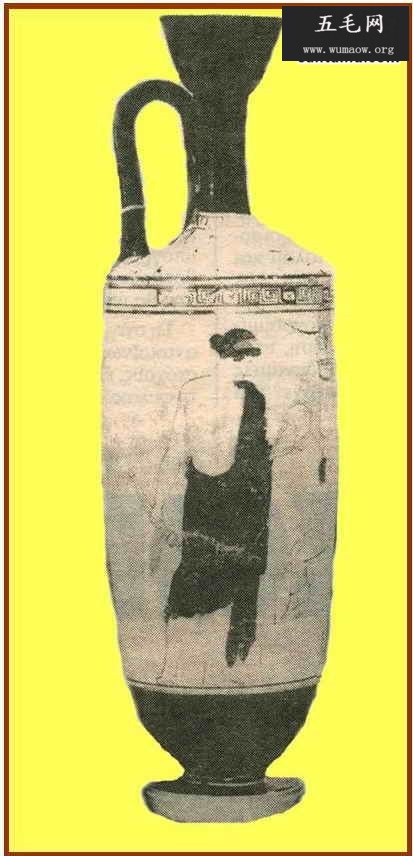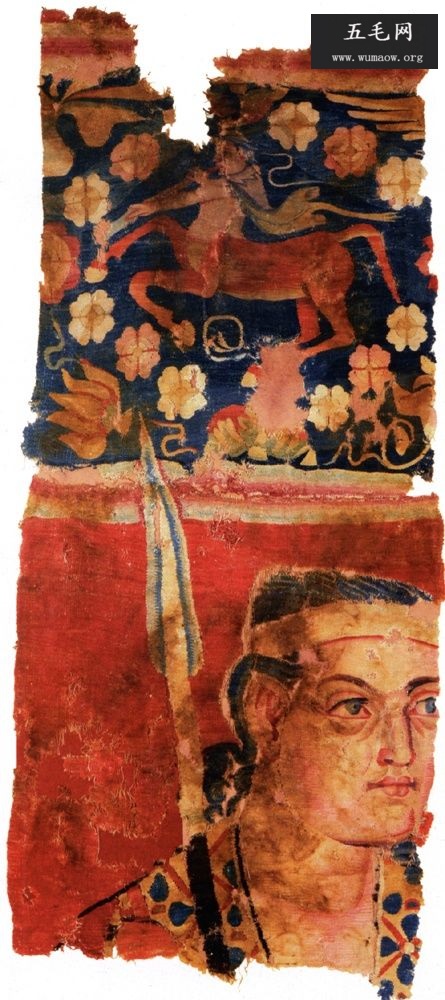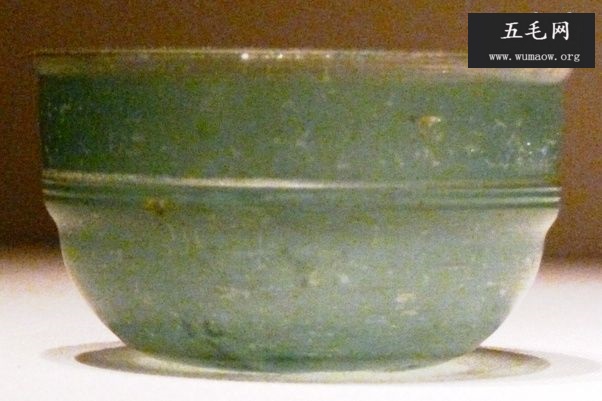美版知乎:古希腊和古罗马知道中国的存在吗
Did Ancient Greek and Rome know the existence of China?古希腊和古罗马知道中国的存在吗? 以下是Quora读者的评论:Jonathan Keile
Did Ancient Greek and Rome know the existence of China?
古希腊和古罗马知道中国的存在吗?
以下是Quora读者的评论:
Jonathan Keiler, Long Time Dog Owner
There was no direct contact between the Mediterranean world and China so far as we can know from recorded history. Neither China nor Greece/Rome ever sent an embassy to the other.
That said, both would have been vaguely aware of the other. The silk road trade in the time of the Han Dynasty to Rome during the Pax Romana was robust, and Chinese silk was a sought after and widely distributed trade good. On the other side, Roman glass was highly valued in China. However, there was no direct trade between the two empires. The silk road was operated through scores of middlemen who bid up the price of goods as they slowly made their way in one direction or the other. Silk manufactured in China would reach Rome but only after a journey of many years, during which its price was endlessly bid up. Same with Roman glass.
The Romans understood that the silk came from capable people far away, but nonetheless they regarded the silk as a “barbarian luxury.” The Chinese felt the same about Roman goods. Considering that each faced enemies on the long distance between the two imperial states—Romans the Parthians, Chinese the nomadic people of the steppes, it is not a big surprise that the two imperial states never came into direct contact. They did not need too, and it would have been extremely difficult and expensive to do so
根据有记载的历史,地中海世界和中国之间并没有直接的接触。中国和希腊/罗马都没有向对方派出过大使。
也就是说,双方都对对方有模糊的认识。汉朝时期通往罗马的丝绸之路的贸易活动在罗马和平时期是很活跃的,中国的丝绸是一个很受欢迎和销路很广的贸易商品。另一方面,罗马的玻璃制品在中国很受重视。然而,两个帝国之间没有进行过直接贸易。丝绸之路是通过几十个中间人来经营的,当他们缓慢地向着某个方向或反方向前进时,这些中间人抬高了商品的价格。中国制造的丝绸要到达罗马,必须经过多年的旅程,在此过程中,丝绸的价格不断上涨。罗马的玻璃也是如此。
罗马人知道丝绸来自遥远的能工巧匠之手,但他们仍然认为丝绸是“野蛮人的奢侈品”。中国人对罗马商品也有同样的感受。两个帝国虽相距甚远,却都面临着敌人——对罗马人而言是帕提亚人、而对中国人而言是大草原上的游牧民族,因此两个帝国从未直接接触也就不足为奇了。他们也不需要,而且这样做是非常困难,代价高昂的。
Ioannis Kokkinidis, GIS Specialist at Cities and Towns of Fresno County, CA (2016-present)
When Alexander the Great begun the conquest of Asia he believed that the eastern edge of the world was India, that is the Hindu river valley. His soldier were willing to spend several years subjugating Afghanistan since they believed that when they finished they would move east to the the eastern end of the world and would have nothing to conquer any more anyway. When the army was told that to the east of the Indus River lies the Ganges River valley the army mutinied demanding to go home. Alexander tried to convince that since the eastern edge of the world was near the campaign was close to the end but they wouldn’t budge, so Alexander was forced to turn back.
Greeks became aware of China, η χώρα των Σήρων where Σηρων means silk makers, during the Hellenistic Era. Menander I of Bactria was reputed to have expanded his kingdom to border the land of the Sereans (I am not sure of the Anglicization) which he probably did not. it shows though that China was known at his time.
The Romans definitely knew of China and China knew of them. Pliny and Ptolemy mention China although they misplace it to the Southeast rather than the Northeast of India. Chinese sources mention Daquin, which refers to the Roman Empire and there is story of a Chinese Army meeting Roman Legions during the reign of Trajan when he was campaigning at the south coast of the Caspian Sea.
当亚历山大大帝开始征服亚洲时,他认为世界的最东边是印度,也就是印度河谷。他的士兵愿意花费数年时间来征服阿富汗,因为他们相信,当他们完成任务后,他们将向东行进,抵达世界的最东端,毕竟在那之外,没有其他可以征服的土地了。当军队被告知印度河以东还有恒河流域时,军队发动了叛乱,要求回家。亚历山大试图让人们相信,由于世界的东部边缘已经临近战役尾声,但他们不愿让步,于是亚历山大被迫返程。
希腊人意识到中国,在希腊化时代ηχώρατωνΣήρωνΣηρων意味着丝绸生产商。巴克里亚的米南德一世(Menander I)扩张了他的王国,与塞里安人的土地接壤,但可能并没有这样做。这表明中国在他那个时代已经是众所周知的。
罗马人当然知道中国,中国也知道罗马。普林尼和托勒密都提到过中国,尽管他们把中国错放在了印度的东南部,而非东北部。中国的史料里提到了达奎因,指的就是罗马帝国,中国有个历史故事中提到,图拉真统治时期,中国军队在里海南岸作战,曾经与罗马军团相遇。
Caroline Turner-Booth, Educator (2015-present)
Yes. There is evidence of Europeans using the silk road. I recommend a fun exploration of this explored in a Jackie chan movie with Chinese depicted defending the road against roman empire. You will have no probs google searching I think it is about 5 years old? There are also a great many documentaries available on the silk road and a recent archeological discovery of tombs in Mongolia with a community of mixed ancestry confirming expansive European migration into the east. Good luck with your research.
是的。有证据表明欧洲人利用了丝绸之路。我推荐一个有趣的探索,在成龙的电影中,中国人为了对抗罗马帝国而捍卫丝绸之路。你肯定能搜索到,这部电影大概是5年前上映的吧?还有很多关于丝绸之路的纪录片,以及最近在蒙古的古墓考古发现,那里曾有一个混合血统的社区,证实了欧洲人向东方的大规模移民。祝你调查顺利。
Chris Towner, former Copy Editor at Cambridge University Press (2000-2012)
It is probable that from 3rd century BCE there was some contact between the Mediterranean region and China. Silk was highly prized in Rome, and there appears to have been Greek influence on Chinese ceramics. Silk was traded along the Silk Road, but the ceramic influence suggests that Greeks actually went to China to bring their skills with them.
很可能从公元前3世纪开始,地中海地区和中国之间就有过一些接触了。在罗马,丝绸是非常珍贵的,似乎希腊人对中国瓷器也有过影响。丝绸沿着丝绸之路进行贸易,但陶瓷的影响表明,希腊人实际上是来中国偷师的。
Thomas Musselman
The Romans sent envoys to China in 166 AD so must’ve learned about them before that date or they wouldn’t have bothered. Written accounts of Indian Ocean trade with references exist from the first century.
I don’t think there is evidence on Alexander’s knowledge but given his ambition it is hard to believe he didn’t ask the Pakistanis/Indians what lay further east.
罗马人在公元166年曾派遣使臣到中国,所以他们一定在那之前就听说过中国,否则他们不会费心派遣使臣的。有关印度洋贸易的书面记录和参考文献从公元一世纪就存在了。
我认为没有证据表明亚历山大知道这些,但鉴于他的雄心壮志,我们很有理由相信他问过巴基斯坦人和印度人,在更远的东方土地上是什么地方。
Peter Lewicke, U.S. Citizen
Alexander the Great, the Macedonian, almost certainly met Dhinese in his conquests of India and Central Asia. He may not have believed that China was large, and the people who wrote about his conquests may not have known anything about China. Similarly, the Romans would have met some Chinese, but they didn’t know much about that land
马其顿的亚历山大大帝在征服印度和中亚的过程中几乎肯定遇到过中国人。他可能不相信中国居然有这么大,那些歌颂他的征战功绩的人可能对中国一无所知。同样,罗马人也遇到过一些中国人,但他们对那片土地知之甚少。
Ior Ant
yes they knew about china. in acient greece china called Σινα /sina/.
this amphoras found in niya town in china. there are a lot of findings.
in south china .
this is an administrative map of china, in the south there is the province Yunnan that found greek acient tomb. also yunnan came from the word /Ιωνια/ tha it was a region of acient greece.
是的,他们知道中国。在古代希腊,中国被称为叫Σινα。
这是在中国的niya镇发现的陶罐。有很多考古发现。
在中国南方。
这是中国的行政地图,南方的云南省发现过希腊古墓。云南也来自这个词/Ιωνια/它是古代希腊的一个地区。
James Taylor, studied at University of New England
They were both aware of it, the Greeks under Alexander considered their eastern border to be with china. There was a small silk trade between Rome and China, with silk in Rome literally worth its weight in gold.
他们彼此都知道对方,亚历山大治下的希腊人认为他们的东部边界是与中国接壤的。在罗马和中国之间小规模的丝绸贸易,在罗马,丝绸跟黄金一样贵。
Jack V. Butler Jr., studied Ancient History at Kansas State University (1991)
Yes, though the contact was actually pretty light. There is a third-century CE account of the interactions between the Rome and China told from the Chinese perspective, called Weilüe. It tells the story of an embassy sent by Rome to China from the court of Emperor Marcus Aurelius. Its actually pretty interesting reading.
是的,尽管实际接触很少。公元三世纪,罗马和中国之间曾有过互动,中国人称其为Weilüe。它讲述了罗马皇帝马可·奥勒留(Marcus Aurelius)朝廷派往中国的大使的故事。读起来很有趣。
Steve Theodore, Got lost on Ithaca once
The Greeks were aware of the distant origin of silk as early as about the 5th century BC; the first mention of the Σῆρες (Seres or “silk people”) is in Ctesias, an early Greek geographer from the Persian empire. Ctesias’s work survives today only in scattered quotations, so there’s not enough information there to know if the “silk people” were clearly identified with the Chinese, or if the Greeks were thinking of one of the many intermediary nations along the route to the east. The fact that the describes them like this:
The Seres and the inhabitants of upper India are said to have an exceedingly large physique as some of them are found to be thirteen cubits [= 6m] tall, and they live for more than 200 years makes it seem unlikely the information was first hand. It may also reflect confusion about the ultimate origin of silk, since the Greeks usually described northern Indians and some of the steppes peoples, such as the Saka, as particularly tall and imposing.
早在公元前5世纪,希腊人就知道了丝绸的遥远起源;第一个提到Σῆρες(赛里斯人或“丝绸人”)是Ctesias,出生于波斯帝国的早期希腊地理学家。时至今日,Ctesias的著作仅存于零散的引文中,因此没有足够的信息来确定“丝绸人”是否明确地与中国人联系在一起,或者希腊人是否指的是东方丝绸之路上众多的中间国家之一。他们是这样描述的:
赛里斯人和印度居民据说拥有非常高大的体格,因为据说他们中的有些人有13腕尺[= 6米]高,寿命达到200多岁。这似乎不太可能是第一手的信息。它也可能反映了人们对丝绸起源的困惑,因为希腊人通常把北印度人和一些大草原民族,如把萨卡人描述为特别高大和威严的形象。
After Ctesias, there’s no literary evidence until around the first century. However there are a few bits of archaeological evidence attesting to ongoing contact. For example the Sampul Tapestry, from modern Xinjiang, probably dates from the heyday of the Greco-Bactrian Kingdom, a central Asian state that arose out of the fragments of Alexander’s empire and sat on what would later become the Silk Road.
The Sampul tapestry depicts a Greek-style centaur and a blue-eyed warrior equipped with a leaf-bladed spear and wearing a Greek-style ‘diadem’ or headband. It’s usually assumed to reflect Chinese trade with the Greeks of Bactria. Photo: Ismoon
From about 130 BC the Greeks in Egypt began sailing to India using the monsoon winds. This opened up a flourishing trade, so adventurous Greek and Roman traders could be found many places in Indochina, Myanmar and southern China. The Romans and Greeks now distinguished between the Seres of northern China, reached overland by caravans, and the Sinae who were reached by the sea routes. The Roman-era sea trade came up the rivers from Burma or sailed around to Guangzhou, where Roman glassware has been found by archeologists
在Ctesias之后,直到大约一世纪才有文学证据。但有一些考古证据可以证明这种接触一直在持续。例如现代新疆的桑普勒挂毯,大概可以追溯到希腊-巴克特里亚王国的鼎盛时期,这个中亚国家是亚历山大帝国的一部分,坐落在后来成为丝绸之路的沿线。
桑普勒挂毯描绘的是一个希腊风格的人头马和蓝眼睛的战士,装备着叶刃长矛,头戴希腊风格的“王冠”或发带,反映了中国与希腊-巴克特里亚的贸易。
大约从公元前130年起,埃及的希腊人开始利用季风向印度航行。这开启了繁荣的贸易,所以可以在印度支那、缅甸和中国南部的许多地方都看到富有冒险精神的希腊和罗马商人。罗马人和希腊人现在区分了中国北部的赛里斯人,他们是通过商队从陆路到达的,而赛里斯人则是通过海路到达的。罗马时代的海上贸易从缅甸沿河流而上或航行到广州,考古学家在那里发现了罗马的玻璃器皿。
2d century Roman glass bowl found in Guangzhou. Photo: John Hill
There were fairly regular commercial contacts after the first century or so, including individuals who claimed, at any rate, to be ambassadors from Rome or China or vice-versa — though most modern scholars think there was no regular diplomatic contact. The distances were great and the powers between Rome and China worked hard to retain a monopoly on the connection. So, Chinese sources on Rome and Roman sources on China both tend to be pretty vague and only moderately accurate. Nevertheless the Romans and Chinese were certainly aware of each other’s existence and each tended to recognize the other as a ‘civilized’ rather than a primitive society.
在广州发现的2d世纪罗马玻璃碗。照片:约翰•希尔
大约在一世纪后,两国之间有了非常频繁的商业往来,其中包括一些人,他们声称自己是罗马或中国的大使——尽管大多数现代学者认为,两国之间没有定期的外交往来。罗马和中国之间的距离十分遥远,而且罗马和中国之间的强国竭尽全力保持对这条通道的垄断。因此,中国关于罗马的资料和罗马关于中国的资料都是相当模糊的,准确性也很一般。尽管如此,罗马人和中国人肯定都知道对方的存在,并且都倾向于承认对方是“文明社会”,而不是原始社会。
Dennis Weidner,
The Greeks were a literate people and wrote extensively about the people they were in contact with. They did not write about China. And the Silk Road did not yet exist. The Greeks of course became involved with the Silk Road, but not the ancient Greeks before the rise of the Romans. It was not until about the 1st century BC that the Silk Road became a well established trading route. This was about the same time that the Scythians disappeared from history.
希腊人是一个有文化的民族,他们大量地描写了与他们接触过的民族。他们没有记录过中国。丝绸之路当时还不存在。当然,希腊人也参与了丝绸之路的建设,但在罗马人崛起之前,古希腊人尚未参与。直到大约公元前1世纪,丝绸之路才成为一条完善的贸易路线。大约在同一时间,斯基泰人从历史上消失了。
Silk Road
Now you can construct elaborate theories like Michael, but if there was any significant awareness it would have appeared in the literature. This does not mean that nothing passed from East to West. The Scythians benefited from controlling trade routes. But as far as I can tell, neither the Greeks or the Chinese knew about each other and there is no descriptions in either Greek and Chinese literature.
It is important to understand how trade worked. There were no caravans that went all the way from China to Greek Black Sea ports. Rather trade was more localized from one central Asian trading center to the next. Thus there was no direct contact and with so many intermediaries there was no real awareness.
The Greeks because of geography would have been the most likely Europeans to know. The Greeks had trading posts all over the Black Sea including Crimea. Travel further field, however, was difficult because of the war-like Scythian domination of the European Steppe.
现在你可以像迈克尔一样构建复杂的理论,但如果有任何重要的认知,它绝对会出现在文学作品中。这并不意味着没有东西从东方传到西方。斯基泰人从控制贸易路线中获益。但据我所知,无论是希腊人还是中国人都不了解对方,希腊文学和中国文学都没有过对彼此的描述。
了解贸易是如何运作的是很重要的。没有大篷车从中国一路开到希腊黑海港口。相反,从一个中亚贸易中心到另一个贸易中心,贸易更加区域化。因此,他们没有直接接触,与许多中间人没有真正的了解。
希腊人因为地理位置的原因最有可能成为欧洲人所了解的对象。希腊人在整个黑海包括克里米亚都有贸易站。然而,由于斯基塞人对欧洲大草原的战争式统治,再往远处走是很困难的。
译文来源:三泰虎 http://www.santaihu.com/p/49980.html 译者:Joyceliu
Nicholas Swift, works at State University of New York at Delhi
They didn't know about them until the Roman period and only indirectly. They were called the Seres in both Greek and Latin, although this could refer generically to Asians beyond India. The first reference to them, and to silk, is from Vergil's Georgics (2.121), written between 37-29 BC: velleraque ut foliis depectant tenuia Seres, "or how the Seres comb fine fleeces from leaves."
他们直到罗马时期才彼此听说,而且是间接地了解。他们在希腊语和拉丁语中都被称为赛里斯人,尽管这个词可能泛指的是印度以外的亚洲人。第一次提到它们及丝绸,是来自于维吉尔的《田园诗集》(2.121),写于公元前37-29年:velleraque ut foliectant tenuia Seres,即“赛里斯人如何梳理树叶上的绒毛。”
Quentin Stephens, Reads history avidly
Yes. The silk road has been in operation for thousands of years. Officially around 200 BC but likely well before that as silk from 1000 BC has been found in Egypt and before 500 BC in Germany. The Greeks and Romans absolutely loved silk. China was known as Serica, which is derived from the ancient Greek word for silk and attested from the 5th century BC.
是的。丝绸之路已经启用了数千年。官方说法是在公元前200年左右,但实际很可能比这更早,因为埃及发现了公元前1000年的丝绸,德国发现了公元前500年之前的丝绸。希腊人和罗马人非常喜欢丝绸。中国被称为“赛里斯人”,这个说法源于古希腊语中的“丝”,并于公元前5世纪得到证实。
版权声明
我们致力于传递世界各地老百姓最真实、最直接、最详尽的对中国的看法
【版权与免责声明】如发现内容存在版权问题,烦请提供相关信息发邮件,
我们将及时沟通与处理。本站内容除非来源注明五毛网,否则均为网友转载,涉及言论、版权与本站无关。
本文仅代表作者观点,不代表本站立场。
本文来自网络,如有侵权及时联系本网站。
-
1
Why do most people who have a positive view of China have been to ...
- 2
- 3
- 4
- 5
- 6
- 7
- 8
- 9
- 10
-
1
Why do most people who have a positive view of China have been to ...
- 2
- 3
- 4
- 5
- 6
- 7
- 8
- 9
- 10













